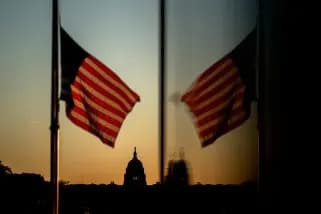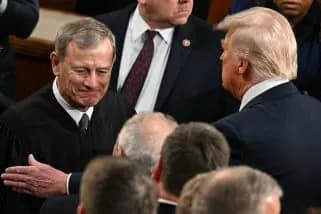Ken Burns’ six-night, 12-hour documentary The American Revolution reframes the nation’s founding as a complex, often violent transformation rather than a simple binary of colonists versus British troops. Burns and co-directors Sarah Botstein and David Schmidt, with writer Geoffrey C. Ward, stitch together letters and firsthand accounts from founding figures, Indigenous leaders, free Black people and formerly enslaved people to reveal competing claims about citizenship and equality. The series premieres as Congress and the White House move to cut roughly $1.1 billion in CPB funding and amid efforts to promote a sanitized, “patriotic” history; Burns argues that studying the past helps resist binary political narratives today.
Ken Burns’ The American Revolution Arrives as the Nation Faces Its Fourth Great Crisis

Watching The American Revolution in America’s Fourth Great Crisis
When discussing his new film and its long conversation with American history, Ken Burns cites a line often attributed to Mark Twain:
“History doesn’t repeat itself, but it rhymes.”Burns was careful to note the quotation is merely attributed to Twain; documentary researchers have found no definitive source. He says he adopted the phrase because it captures how the past echoes into the present without repeating exactly.
“People often say ‘history repeats itself,’” Burns told me last summer, “but that’s never literally true. What’s interesting about the American Revolution is that it marked a transformation: until then most people were subjects; then some people became citizens. That’s a distinct moment.”
Burns — often described as America’s storyteller — has been on a cross-country tour previewing The American Revolution. His remarks sometimes lean toward grand claims (at one point calling the Revolution the most important event in world history after the birth of Christ), but that emphasis reflects a broader effort to push back against sentimentalized or sanitized accounts of the past.
Context: Public Broadcasting and Politics
Burns’ July visit to Seattle coincided with a controversial congressional decision, driven by a White House directive promoted by Donald Trump, to rescind nearly $1.1 billion in federal funding for the Corporation for Public Broadcasting (CPB). CPB funding supported NPR and PBS and primarily flowed to local stations and community grantees; those organizations received their final federal grant payments in September. In response, Burns and PBS have promoted teaching resources to help students engage with the multiple voices that make up America’s origin story.
A Broader, Messier Origin Story
With co-directors Sarah Botstein and David Schmidt and writer Geoffrey C. Ward, Burns weaves letters, official documents and firsthand accounts into a nuanced narrative that balances lofty ideals with hypocrisy, beauty and brutality. The series foregrounds voices often omitted from simplified founding myths: Indigenous leaders, free Black people, formerly enslaved people, ordinary colonists, Enlightenment thinkers and the European allies who shaped the war’s outcome.
Those primary sources often express grievances and anxieties that sound remarkably modern. The filmmakers argue persuasively that the Revolution was not merely colonists versus British redcoats but a broader, international and multiethnic struggle — one that depended on French and Spanish involvement and the participation of Black and Indigenous people who embraced, in various ways, the promise of self-government.
Citizenship, Division and Violence
Deciding who counted as a citizen drove political and physical conflict beyond the battlefield. Despite the Declaration of Independence’s assertion that equality is a self-evident truth, many leading founders — including George Washington and Thomas Jefferson — failed to live up to that ideal. Towns and families were split between Patriots and Loyalists, and several historians in the film describe the Revolution as a kind of civil war.
A constellation of performers supply voice work, including Tom Hanks, Michael Greyeyes, Meryl Streep, Morgan Freeman, Ethan and Maya Hawke, and Paul Giamatti (who voices John Adams, a role he previously played in HBO’s John Adams). Peter Coyote narrates in Burns’ familiar cadence; the series recalls Burns’ earlier epics such as The Civil War and The War, while offering its own rigorous, illuminating approach to a foundational moment.
Why It Matters Now
With the nation’s 250th anniversary approaching in 2026 and political polarization deepening, Burns, Botstein and Schmidt’s series is a reminder that the United States has survived severe ruptures before. Burns places the present moment as America’s fourth great crisis — after the Civil War, the Great Depression, and World War II — a view informed by decades of historical filmmaking.
“What the study of history tells you is that we’ve always been divided,” Burns observes. He cautions against binary thinking and sentimentalized histories and emphasizes that the past is complicated, often violent and sometimes inspiring. Research on The American Revolution began nearly a decade ago; Burns is also working on a project about Reconstruction.
The American Revolution premieres at 8 p.m. on Sunday, November 16, and airs over six consecutive nights on PBS member stations.
Help us improve.


































